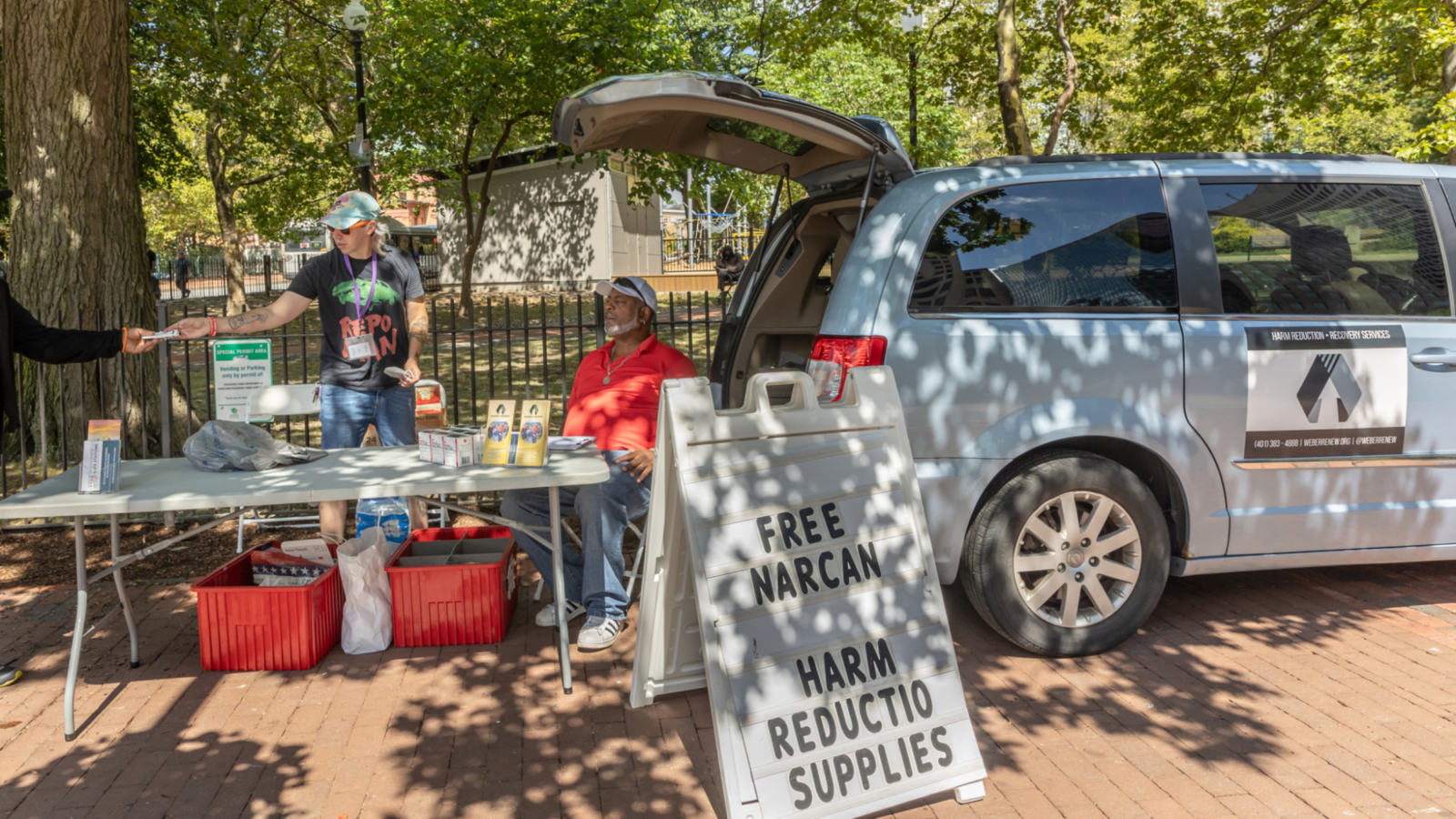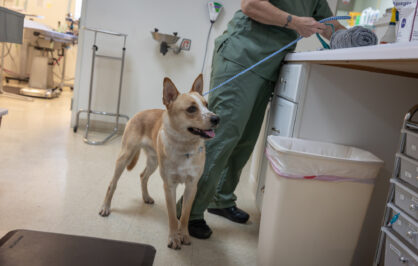
Media release
Nonprofits can apply for nearly $2.5 million for opioid use recovery and support services
Partnership between the Rhode Island Foundation and the Rhode Island Executive Office of Health and Human Services is fully funded with state Opioid Settlement Agreement dollars
The Rhode Island Foundation is offering nearly $2.5 million in grants to address the state's opioid crisis in partnership with Governor Dan McKee’s Executive Office of Health and Human Services (EOHHS). This collective effort will support the State’s goal of saving and improving lives. The deadline to apply is June 6.
“This funding is a crucial investment in prevention, treatment, and recovery — and most importantly, in saving lives and restoring hope,” said Governor Dan McKee. “My administration is committed to working with partners like the Rhode Island Foundation and community organizations to build a healthier state where those impacted by substance use can access the help they need.”
“From those who are suffering with addiction and their families to the first responders who provide emergency care and the bottom-line impact of lost lives and potential on our communities, nearly every Rhode Islander knows someone who has been affected by this devastating epidemic,” said David N. Cicilline, the Foundation’s president and CEO.
According to the state Department of Health, 404 Rhode Islanders died from an accidental drug overdose in 2023, the last year for which there is final data. The annual number of drug overdose deaths in Rhode Island has jumped nearly 30 percent since 2019, largely due to the presence of illicit fentanyl. In 2023, fentanyl contributed to more than three in four overdose deaths. Data shows a drop in deaths from the first 6 months of 2024 compared to the same time in 2023.
“With this critical funding, we are taking essential steps toward addressing the devastating substance use and overdose crisis that affects so many of our Rhode Island community members,” said EOHHS Secretary Richard Charest.
“These funds will not only help connect individuals to vital resources, but it will also empower local communities to create compassionate, tailored solutions. Together, we can build a more supportive environment where people are accessing the tools to heal, recover, and thrive,” said EOHHS Assistant Secretary Ana Novais.
The Foundation will make grants in four categories: Trauma Supports; Individual, Family and Community Recovery Supports and Capital; Youth Community-based Prevention; and Emerging Issues. The grants will be fully funded with the proceeds of the state’s Opioid Settlement Agreement.
In the Trauma Supports category, $625,000 is available to fund mental health counseling for first responders, including law enforcement, emergency medical personnel and peer responders; in order to help them cope with the emotional impact of their on-the-job exposure to the crisis.
In the Individual, Family and Community Recovery Supports and Capital category, $850,000 is available to support programming by organizations made up of or serving individuals, families, and communities affected by the opioid crisis.
This includes supporting families of people who use drugs, who are in recovery or who have passed away because of an overdose. Services can include holistic recovery programing and community recovery-capital building through community events, activities and other community-focused programming.
In the Youth Community-Based Prevention category, $700,000 is available to support evidence-based or evidence-informed community-based trauma supports, opioid prevention services, and leadership opportunities for Rhode Island youth and young adults.
In the fourth and final category–Emerging Issues – $300,000 is available to respond to developing issues in the overdose epidemic. Work can include outreach to private locations and targeted outreach to populations that are disproportionately impacted or marginalized, including communities of color, LGTBQ+ communities, and older Rhode Islanders.
The Foundation anticipates making two to four grants in each of the first three categories and three to five grants in the final category.
Applicants for any of the grant programs must display an overall focus on equity in their work and must align their applications with the Rhode Island Opioid Settlement Agreement Guiding Principles. More information can be found in the grant program specifications.
The funding comes from the settlements secured by Attorney General Peter F. Neronha. Rhode Island has executed both national and Rhode Island specific opioid settlements with manufacturers, distributors, pharmacies, and consultants that perpetuated the opioid epidemic, leading to approximately $285 million in funding and life-saving medication to support state and local efforts to address Rhode Island’s opioid crisis.
“It is crucially important that the $285 million that my Office secured from opioid settlements is helping those suffering from substance use disorder due to the actions of companies who perpetuated opioid use for profit,” said Attorney General Neronha. “Once again, I am thankful to our partners at the Rhode Island Foundation, EOHHS, and the community organizations carrying out this important work for their commitment to addressing this crisis with meaningful action and prioritizing the health and safety of affected Rhode Islanders.”
Pursuant to the various settlement agreements, all the funds are required to be directed to opioid abatement – including expanding access to opioid use disorder prevention, intervention, treatment, and recovery. Rhode Island’s prevention priorities are to prevent overdoses, overdose deaths, and opioid misuse by identifying, developing, and evaluating multi-level strategies and interventions.
For more information about applying for funding from the Opioid Settlement Impact and Recovery Grants Program, visit rifoundation.org.
This will be the third round of funding from the program. Since 2023, the Foundation has awarded $4.55 million in grants to nonprofit organizations to address opioid use, treatment, and prevention.



